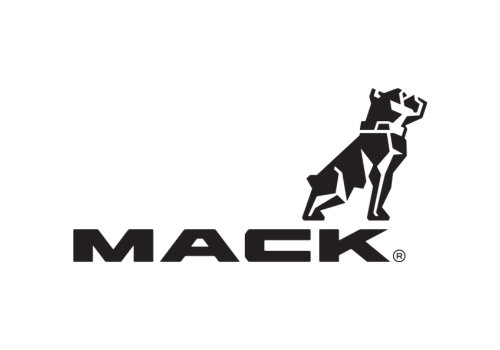As we usher in the summer of 2024, the construction industry once again prepares to participate in National Safety Month, an annual observance aimed at raising awareness about workplace safety. Organized by the National Safety Council (NSC), National Safety Month is celebrated every June to highlight critical safety issues and promote best practices that can prevent injuries and save lives. For construction contractors, this month provides an opportunity to reinforce the importance of safety protocols and foster a culture that prioritizes the well-being of all workers.
THE SIGNIFICANCE OF NATIONAL SAFETY MONTH
The construction industry is inherently risky, with workers frequently exposed to hazards such as falls, electrical shocks, heavy machinery and hazardous materials. One in five worker deaths in the United States occurs in construction. This stark statistic underscores the urgent need for ongoing safety education and improvements within the industry.
National Safety Month serves as a dedicated period for construction contractors to review their safety programs, conduct training sessions and engage employees in conversations about safety. By doing so, contractors can help reduce the number of accidents and injuries on jobsites, creating a safer work environment for everyone.
WEEK-BY-WEEK FOCUS AREAS
National Safety Month 2024 will cover a variety of topics, each crucial for enhancing safety awareness and practices on construction sites. Here’s a breakdown of the focus areas for each week and how constructors can use these to enhance safety operations.
Week 1 (June 1-8): Safety Engagement
Creating a culture of safety within the workplace is essential for the success of any safety program. This week can focus on enhancing active participation and awareness among employees through several key strategies. First, implement interactive training sessions that utilize engaging learning methods and simulations to make safety education more captivating. Second, establish safety committees composed of representatives from various departments to promote a collective safety culture. Third, maintain robust communication campaigns by regularly sharing safety tips and success stories with your entire workforce.
Week 2 (June 9-15): Roadway Safety
Ensuring roadway safety is vital for organizations with employees who drive as part of their jobs. This week can highlight best practices to minimize accidents on the road. Start by offering defensive driving courses that train drivers to anticipate and respond to potential hazards. Regular vehicle maintenance is also essential—implement consistent inspection and maintenance schedules to ensure all vehicles are roadworthy. Additionally, develop clear driving policies, including mandatory seat belt use, adherence to speed limits and the prohibition of mobile phone use while driving.
This month provides an opportunity to reinforce the importance of safety protocols and foster a culture that prioritizes the well-being of all workers.
Week 3 (June 16-22): Risk Reduction
Proactively addressing potential hazards is key to preventing workplace injuries. This week can focus on effective risk reduction strategies. Begin with regular risk assessments to identify and prioritize mitigation efforts for potential hazards. Ensure robust hazard communication so all employees are aware of the risks in their work environment and understand how to mitigate them. Additionally, develop and routinely update emergency preparedness plans, including clear evacuation procedures and comprehensive first aid training.
Week 4 (June 23-30): Slips, Trips and Falls
Slips, trips and falls are among the most common workplace injuries, yet they can be significantly reduced with the right preventative measures. This week can emphasize key strategies to tackle these hazards. Begin with thorough evaluation and control by identifying and assessing risks, followed by training employees in prevention techniques. Encourage the use of proper personal protective equipment (PPE), such as hard hats, safety glasses and fall protection gear, to mitigate injury risks. Lastly, conduct regular safety inspections to identify and rectify potential slip, trip and fall hazards.
HOW CONTRACTORS CAN GET INVOLVED
- Conduct Safety Training
Use National Safety Month as an opportunity to conduct comprehensive safety training sessions. Cover the focus areas for each week and ensure that all employees understand the importance of following safety protocols. - Review and Update Safety Plans
Take the time to review and update your safety plans, ensuring that they reflect current best practices and address any new hazards that may have emerged. - Engage Employees
Encourage employees to actively participate in safety initiatives. Hold safety meetings, encourage reporting of hazards and recognize workers who demonstrate a commitment to safety. - Promote Mental Health Resources
Provide resources and support for mental health, such as access to counseling services, stress management programs and mental health first aid training. - Celebrate Successes
Acknowledge and celebrate safety successes, whether it’s completing a project without any incidents or recognizing an employee for their dedication to safety. Celebrating these achievements can reinforce the importance of safety and motivate everyone to maintain high standards.
LOOKING AHEAD
National Safety Month 2024 presents a valuable opportunity for construction contractors to enhance their safety programs, protect their workers and build a culture of safety. By participating in each of the four focus areas in June, contractors can help create safer jobsites all year long.
Remember, safety is not a one-time event but an ongoing commitment. Use National Safety Month as a springboard to continuously improve safety practices and ensure that every worker returns home safely at the end of the day. Together, we can all build a safer future for the construction industry.
FREE SAFETY RESOURCES
Access free materials on the NSC website without needing membership. Simply enter some basic information for immediate access to safety month planning resources: Posters, Safety Signs, SafeAtWork Pledge, Weekly Safety Talks and Games, and much more!
Photo credit: KUZMA/BIGSTOCKPHOTO.COM











